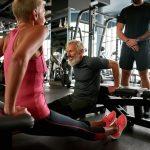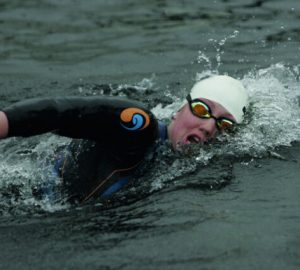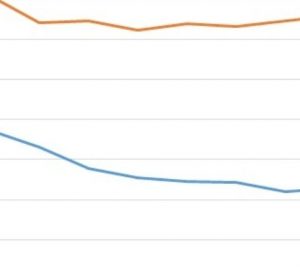I’ve got the post-swim blues
Much is written about preparing for a significant open water swim. There is also plenty of advice on what to do during an open water swim. However, not so much is said about how we could be feeling or what we should do after a major open water swim. This is a shame because a good recovery plan can make the difference between returning happily to the water or giving up for ever.
Immediately after finishing there are the obvious things: a high-five or a hug from your supporters, a quick change and perhaps a warming mug of hot chocolate but what about in the days and weeks that follow? The feeling of euphoria you had shortly after crossing the finish line can vanish like the morning mist on the ocean. I’ve seen this in many different ways, from people completely losing the desire to re-enter the water to an on-going feeling of fatigue and lethargy.
It doesn’t matter if your swim challenge was completing your first open water mile or swimming the English Channel. If you’ve pushed yourself beyond your normal limits you’re going to be affected in some way. Following an open water swim success you are most likely to fall into one of these three (please note the irony) carefully scientifically assigned categories:
- You feel super human. Following your big swim you wake up the next day and feel like you could do it again. Yes, we’re all jealous, but be careful as if you do push the limits again too soon you may cause yourself injury or burn out.
- You crawl onto the couch the next day and remain there for the next two years while the weight piles on. It’s a bit extreme but not unheard of.
- You feel lethargic and sore, and swimming is a chore. You go through the motions but your heart’s not in it and your times are slow.
All three scenarios are possibilities for the majority of us. Our post swim state will be affected by numerous factors including our pre-event preparation, genetics, nutrition, state of mind and the conditions we faced on the day. In an ideal world, we’d feel great about our success, recover quickly and begin training again for our next goal, so how can we best make this happen?
Firstly, note that how you prepare is hugely significant. You should be fit and skilled enough for the event you are undertaking. A few two-mile swims will not prepare you well for the English Channel and your body will be angry with you if you try. Secondly, you must pay attention to your swimming technique both during training and on event day. Subtle differences in technique can make a big difference to your chances of picking up an injury.
What you do after the event depends to an extent on the nature of the swim. After a short high-intensity race it’s a good idea to do a gentle swim as a cool down. As this is often not possible at the event venue, going for a light swim the next day can help ease aching muscles. We often refer to this as active recovery.
After longer swims, especially if they are in cold water and you are already chilled, the last thing you want to do is a ‘cool down’. Your first recovery priorities are warmth, hydration and food. The bigger the swim the more your body will have depleted its resources. The sooner you can get replacement nutrition into the body the sooner your body can start the repair process. What works will differ for each individual and in the immediate aftermath you may have to judge how you feel. If you are nauseous for example, fluids may be all you can handle. Personally I’m a big fan of protein from natural sources such as chicken and fish and nutrients and carbohydrates from salad and vegetables. While you might feel you deserve a donut it’s unlikely to aid your recovery. Joel Enoch examines your post-event dietary needs in more detail on p.47.
Nutrition is hugely important but you also need to rest. Following a big swim the rest required might involve a few days of little more than sleeping and relaxing. After this initial period you should move into a phase of active recovery. Do a light swim, take a walk or have a massage to encourage circulation and help the recovery process gain momentum before you return to full training. Having a few weeks’ respite is good. Sitting on the couch for 12 months is not.
At all times during your recovery process the expert on you is you. You have to listen to your body. Hopefully you will have practised this during training and being able to apply this self-analysis accurately post-swim is an excellent skill. Do not fall into the trap of thinking it is just you that feels sore and damaged following a big swim.
Looking after your body following your big event is essential but there can also be a psychological price to pay when we push ourselves to extremes trying to achieve various goals of distance, speed and endurance. We invest a lot of time, effort and sometimes money to achieve our goals and can therefore feel exhausted on many levels – including emotionally – once that dream is realised. You may feel down or low: a case of the post-swim blues.
If this is the case, try to reflect on what attracted you to swimming in the first place, go for easy short swims or meet friends for wild adventures swims. Doing something different and refreshing can help you recapture that swim spark.
If the above doesn’t help or if your post swim blues are extreme, you may need to seek further help and advice from experts and friends. I would advocate a complete review and analysis of what you could do better next time to avoid a reoccurrence whether that’s better preparation, more attention to nutrition or an enhanced post-swim recovery plan. Becoming a better swimmer requires learning lessons and ideally not repeating mistakes. But do remember, being fatigued and sore after a big swim is natural. You have done things most of the population have not. Your body and mind will need to recover. Taking care of your body will go a long way to reducing the risk of post-swim blues but you may also need to take action for mental recovery.








